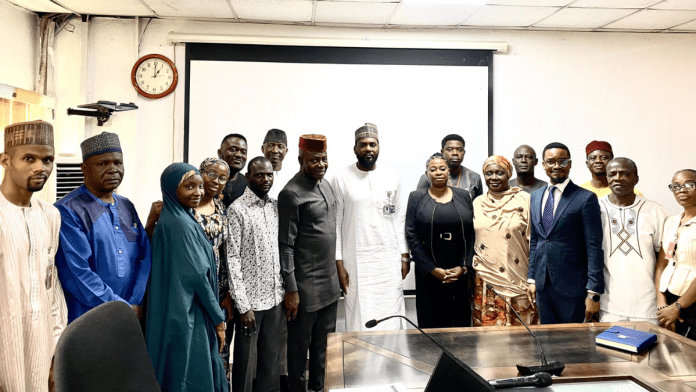News in brief:
– Nigeria establishes steering and technical committees to tap into the Global Bioenergy Partnership initiatives.
– The country aims to harness its abundant bioenergy potential for sustainable development.
Nigeria has established steering and technical committees for the Nigeria Bioenergy Partnership (NBP) to tap into the Global Bioenergy Partnership (GBEP) initiatives.
The inauguration ceremony took place on Tuesday, and was led by Dr. Mustapha Abdullahi, Director-General of the Energy Commission of Nigeria (ECN), the country’s lead agency for national energy policy development.
I had the honour of inaugurating the steering and technical committees for the Nigeria Bioenergy Partnership (NBEP), today, to reflect the country’s readiness to key into the Global Bioenergy Partnership (GBEP) initiatives.
This is to enable Nigeria benefit from its abundant⦠pic.twitter.com/75PztI5QBC
â Dr. Mustapha Abdullahi CEng MIMechE (@Dr_A_Mustapha) November 14, 2023
Addressing the event in Abuja, Dr. Abdullahi emphasised the immense potential benefits that Nigeria stands to gain from its abundant bioenergy resources, which have remained largely underutilised for years.
According to media coverage, he claimed that the establishment of the National GBEP Steering and Technical Committee marks the official and comprehensive commencement of discussions on bioenergy with key stakeholders.
The NBP’s gaol is to promote sustainable bioenergy development in Nigeria by fostering collaboration among various stakeholders, including government agencies, research institutions, private companies, and civil society organizations.
Meanwhile, the inaugurated steering committee will provide strategic direction and oversight to the NBP’s activities, while the technical committee will focus on implementing specific projects and initiatives.
The inauguration of these committees represents a crucial step forward in Nigeria’s efforts to harness its bioenergy potential and transition towards a more sustainable energy future.
Bioenergy, derived from organic matter of plants, known as biomass. They include such things as agricultural residues, forestry waste, and municipal solid waste, all called feedstock. This form of energy offers a promising alternative to fossil fuels, contributing to reduced greenhouse gas emissions and improved environmental sustainability.
The International Energy Agency (IEA) says that nearly 33% of biofuel demand growth will occur in Brazil, India and Indonesia. The characteristics that the agency outline that makes these three countries key players are similar to Nigeria’s. For example, they have more than enough feedstocks and import a bulk of their fossil fuel needs, just like Nigeria.
By reducing the cost of producing bioenergy and increasing its capacity, Nigeria can enjoy the full benefit of its feedstock. Also, the country will need policies targeting these goals.



